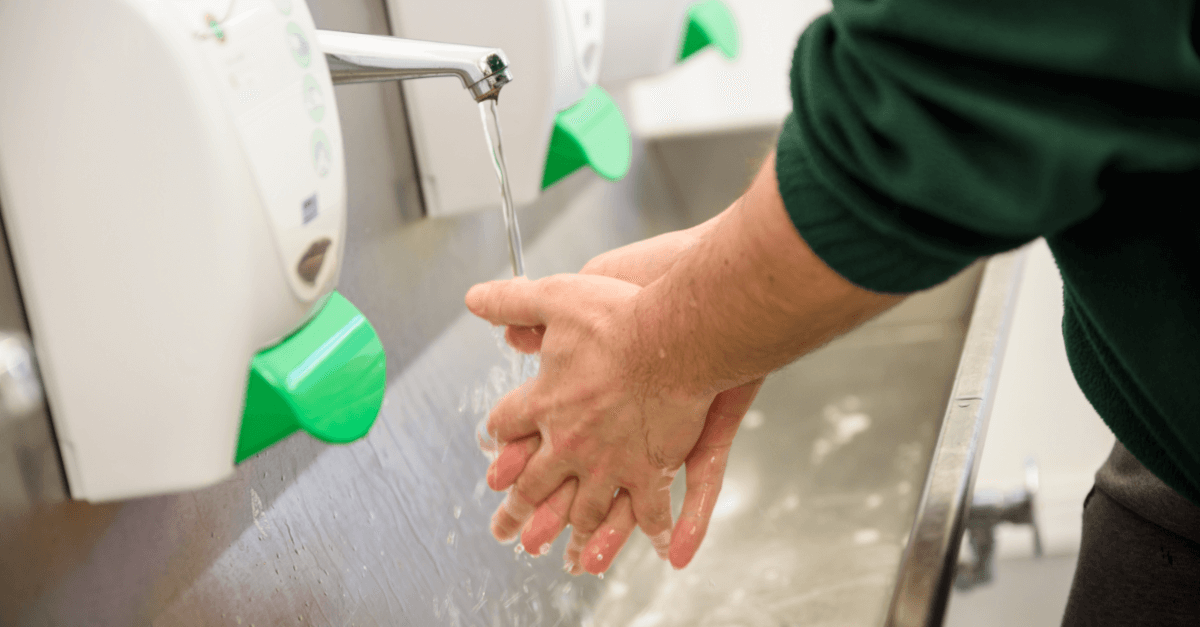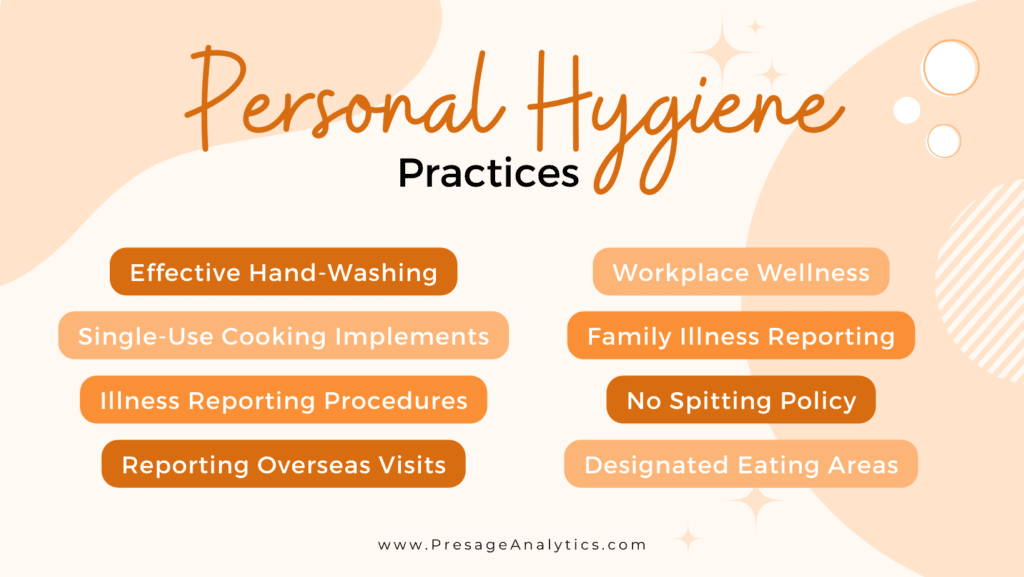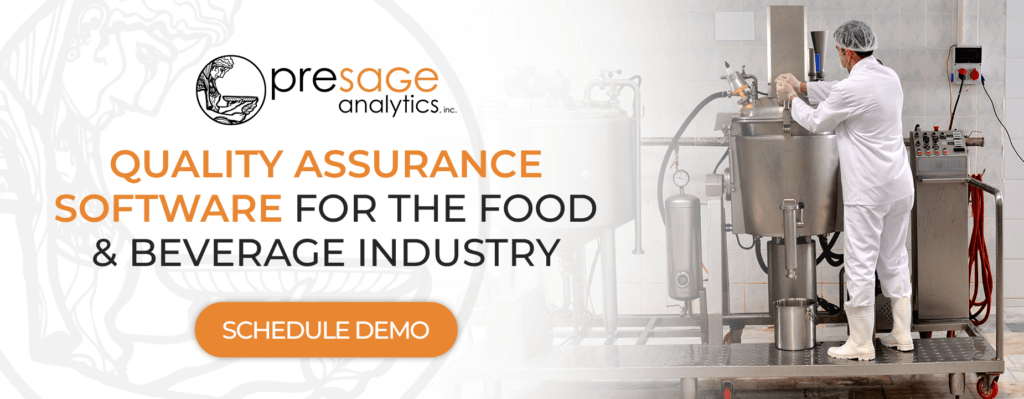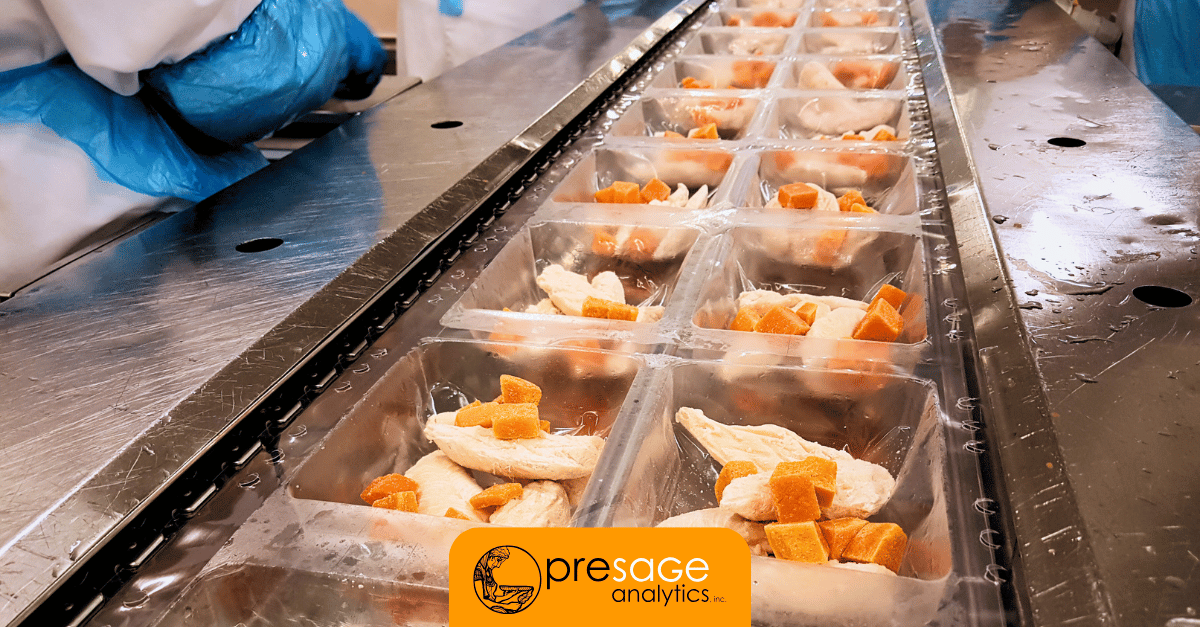Hygiene Conciousness: Promoting Good Personal Hygiene

The significance of promoting good personal hygiene among staff cannot be overstated. It’s important to instill a culture of hygiene consciousness within your organization. This not only ensures compliance but also safeguards the health of consumers and the reputation of your brand.

Preventing Contamination
As a food safety or quality assurance professional, you bear the responsibility of implementing robust control measures to prevent contamination by sick food handlers. Here are some actionable steps to reinforce good personal hygiene practices among your staff:
- Effective Hand-Washing: Encourage rigorous hand-washing practices among your staff. Emphasize the importance of washing hands after visiting the toilet, touching the face, sneezing, or using a tissue. Proper hand hygiene is one of the most effective ways to prevent the spread of harmful pathogens.
- Use of Single-Use Cooking Implements: Minimize the risk of contamination by enforcing the use of single-use cooking implements for tasting purposes. This simple measure helps to prevent saliva contamination, thereby maintaining the integrity of the food being prepared.
- Illness Reporting Procedures: Establish clear and confidential illness reporting procedures within your organization. Encourage employees to promptly report any symptoms of illness and provide support in accessing medical assistance if needed.
- Reporting Overseas Visits: Implement protocols for reporting overseas visits by staff members. Similar to customs or quarantine requirements in certain countries, this helps to mitigate the risk of introducing foreign pathogens into your facility.
- Workplace Wellness: Discourage employees from working while they are sick. Encourage them to prioritize their health and well-being, and provide adequate support for sick leave if necessary.
- Family Illness Reporting: Encourage staff to report if anyone in their family has been ill. This information can help in assessing potential risks and taking proactive measures to prevent the spread of illness within the workplace.
- No Spitting Policy: Enforce a strict policy against spitting within the food premises. Spitting can introduce harmful bacteria and compromise the safety of the food being prepared.
- Designated Eating Areas: Establish designated non-food areas for eating and drinking. This helps to prevent cross-contamination between food preparation areas and dining spaces.
Medical Screenings and Continuous Education
In addition to these measures, consider implementing medical screenings for staff prior to employment or periodically during their tenure. These screenings can help assess the health status of food handlers and identify any potential risks of contamination.
Continuous education and training programs play a pivotal role in reinforcing good personal hygiene practices among staff. By investing in ongoing training initiatives, you empower your employees with the knowledge and skills needed to maintain high standards of hygiene and food safety.

Schedule a Demo with Presage
At Presage Analytics, we understand the importance of promoting good personal hygiene within food-related industries. Our innovative solutions are designed to support organizations in their efforts to uphold the highest standards of safety and quality. Schedule a demo with our sales team today to discover how Presage can help enhance your safety protocols and safeguard your reputation.





